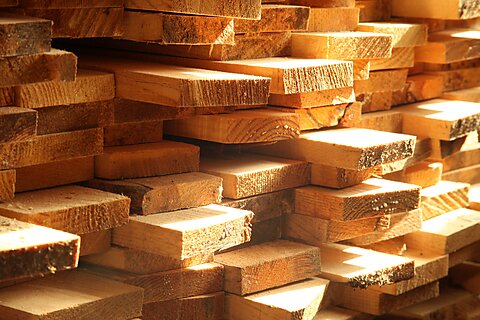Scott Lincicome
On March 1, President Trump instructed the Secretary of Commerce to initiate an investigation under Section 232 of the Trade Expansion Act of 1962 on the effects of imported timber, lumber, and their derivative products on US national security. This case follows an amended Section 232 action on steel and aluminum from early February and a new investigation of copper imports launched this week.
President Trump’s affinity for the law is nothing new. As Inu Manak and I documented in a 2021 Cato paper, Trump repeatedly invoked—and abused—Section 232 during his first term to initiate several investigations and to impose the aforementioned steel and aluminum tariffs on dubious grounds, raising a host of legal, economic, and procedural concerns along the way.
Trump’s new Section 232 action on wood products, however, ratchets up those concerns to a whole new level, in the process revealing many of the fundamental problems with the law that we first highlighted four years ago.
Most obviously, new tariffs or other import restrictions on lumber and other wood products would mean higher prices for those things in the US market—a particularly heavy burden for already-struggling American homebuilders and homebuyers.
Contrary to President Trump’s frequent assertions, Americans paid the tariffs he imposed in his first term, and research we commissioned in 2022 found that US “trade remedy” tariffs (i.e., anti-dumping and countervailing duties) on lumber and other construction materials lead to a persistent increase in their domestic prices—costs builders often passed on to homebuyers (Figure 1).
More recently, the National Association of Home Builders has indicated that the administration’s 25 percent tariffs on imports from Mexico and Canada could increase builder costs from $7,500 to $10,000 per home, while a separate industry association estimated that Canadian tariffs would add $4,900 per home due to the higher cost of lumber.
Those tariffs, and the uncertainty surrounding them, have already sent lumber futures soaring to a 30-month high. Higher antidumping and countervailing duties are looming too (go here for more on that process and its many problems).
New Section 232 tariffs on imported wood products would compound these price pressures and their harm to the US housing market—all at a time when average home prices are hovering near their all-time highs and mortgage rates remain far above where they were before the pandemic.
The new Section 232 investigation also raises legal concerns and provides further evidence that the statute needs reform. For starters, the Executive Order’s express mention of “dumped” products and “unfair subsidies” raises real questions about whether the White House is using Section 232 to circumvent US anti-dumping and countervailing duty (AD/CVD) laws, which Congress specifically intended to be used by the Executive Branch to investigate and remedy injurious dumping and subsidization. As we documented in 2021, Section 232 is less systematic, more discretionary, and far more ripe for abuse than US AD/CVD laws, which for all their warts have real substantive and procedural checks and are subject to serious judicial review. For Commerce to use Section 232 to remedy “dumping” of and “unfair subsidies” to foreign wood products would avoid these congressionally mandated checks entirely. Can that really be what Congress intended?
The investigation also reveals just how broken both Section 232 and the underlying “economic security is national security” approach to US trade relations are today. According to the Executive Order, foreign wood products could threaten US national security simply because the US military uses wood products for construction and materials testing purposes. Yet this reasoning implicitly admits that there is no direct, serious connection between imported wood products and US national defense—hardly a revelation given that wood is not used much, if at all, in modern defense goods (tanks, planes, missiles, etc.).
It’s also absurd on its face: If war broke out tomorrow, there’d be zero concern about American “dependence” on foreign lumber or furniture, and domestic sources would be quickly and easily acquired. (We have lots of trees, and these industries neither involve advanced technology nor are highly capital intensive.) Furthermore, nearly half of total US lumber imports come from Canada, a longstanding military ally and close trading partner.
Yet, because Section 232 does not explicitly define “national security” and because federal courts have been highly deferential to the executive branch in legal challenges involving the law, it’s possible that we could end up with “national security” tariffs on wood!
The Trump administration once famously refused to tell a federal judge that imported peanut butter couldn’t be a “national security” threat under Section 232. That scenario was telling and humorous, but it was just as hypothetical. Now we have a real case that’s only marginally less absurd—and far more damaging.

